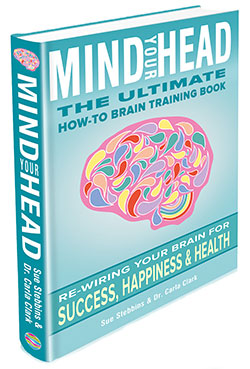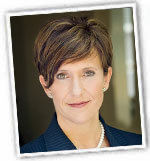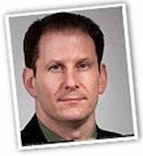What is an Emotion?
William James (1884)
Source: http://psychclassics.yorku.ca/James/emotion.htm
I feel persuaded there is no real exception to the law. The formidable effects of suppressed tears might be mentioned, and the calming results of speaking out your mind when angry and having done with it. But these are also but specious wanderings from the rule. Every perceptions must lead to some nervous result. If this be the normal emotional expression, it soon expends itself, and in the natural course of things a calm succeeds. But if the normal issue be blocked from any cause, the currents may under certain circumstances invade other tracts, and there work different and worse effects. Thus vengeful brooding may replace a burst of indignation; a dry heat may consume the [p.199] frame of one who fain would weep, or he may, as Dante says, turn to stone within; and then tears or a storming-fit may bring a grateful relief. When we teach children to repress their emotions, it is not that they may feel more, quite the reverse. It is that they may think more; for to a certain extent whatever nerve-currents are diverted from the regions below, must swell the activity of the thought-tracts of the brain. [3]
The last great argument in favour of the priority of the bodily symptoms to the felt emotion, is the ease with which we formulate by its means pathological cases and normal cases under a common scheme. In every asylum we find examples of absolutely unmotived fear, anger, melancholy, or conceit; and others of an equally unmotived apathy which persists in spite of the best of outward reasons why it should give way. In the former cases we must suppose the nervous machinery to be so "labile" in some one emotional direction, that almost every stimulus, however inappropriate, will cause it to upset in that way, and as a consequence to engender the particular complex of feelings of which the psychic body of the emotion consists. Thus, to take one special instance, if inability to draw deep breath, fluttering of the heart, and that peculiar epigastric change felt as "precordial anxiety," with an irresistible tendency to take a somewhat crouching attitude and to sit still, and with perhaps other visceral processes not now known, all spontaneously occur together in a certain person; his feeling of their combination is the emotion of dread, and he is the victim of what is known as morbid fear. A friend who has had occasional attacks of this most distressing of all maladies, tells me that in his case the whole drama seems to centre about the region of the heart and respiratory apparatus, that his main effort during the attacks is to get control of his inspirations and to slow his heart, and that the moment he attains to breathing deeply and to holding himself erect, the dread, ipso facto, seems to depart [4]
[p.200] The account given to Brachet by one of his own patients of her opposite condition, that of emotional insensibility, has been often quoted, and deserves to be quoted again:-
"I still continue (she says) to suffer constantly ; I have not a moment of comfort, and no human sensations. Surrounded by all that can render life happy and agreeable, still to me the faculty of enjoyment and of feeling is wanting - both have become physical impossibilities. In everything, even in the most tender caresses of my children, I find only bitterness. I cover them with kisses, but there is something between their lips and mine; and this horrid something is between me and all the enjoyments of life. My existence is incomplete. The functions and acts of ordinary life, it is true, still remain to me; but in every one of them there is something wanting-to wit, the feeling which is proper to them, and the pleasure which follows them…Each of my senses, each part of my proper self, is as it were separated from me and can no longer afford me any feeling; this impossibility seems to depend upon a void which I feel in the front of my head, and to be due to the diminution of the sensibility over the whole surface of my body, for it seems to me that I never actually reach the objects which I touch…I feel well enough the changes of temperature on my skin, but I no longer experience the internal feeling of the air when I breathe…All this would be a small matter enough, but for its frightful result, which is that of the impossibility of any other kind of feeling and of any sort of enjoyment, although I experience a need and desire of them that render my life an incomprehensible torture. Every function, every action of my life remains, but deprived of the feeling that belongs to it, of the enjoyment that should follow it. My feet are cold, I warm them, but gain no pleasure from the warmth. I recognise the taste of all I eat, without getting any pleasure from it….My children are growing handsome and healthy, everyone tells me so, I see it myself, but the delight, the inward comfort I ought to feel, I fail to get. Music has lost all charm for me, I used to love it dearly. My daughter plays very well, but for me it is mere noise. That lively interest which a year ago made me hear a delicious concert in the smallest air their fingers played,-that thrill, that general vibration which made me shed such tender tears,-all that exists no more". [5]
Other victims describe themselves as closed in walls of [p.201] ice or covered with an india-rubber integument, through which no impression penetrates to the sealed-up sensibility.
If our hypothesis is true, it makes us realise more deeply than ever how much our mental life is knit up with our corporeal frame, in the strictest sense of the term. Rapture, love , ambition, indignation, and pride, considered as feelings, are fruits of the same soil with the grossest bodily sensations of pleasure and of pain. But it was said at the outset that this would be affirmed only of what we then agreed to call the "standard" emotions; and that those inward sensibilities that appeared devoid at first sight of bodily results should be left out of our account. We had better, before closing, say a word or two about these latter feelings.
They are, the reader will remember, the moral, intellectual, and aesthetic feelings. Concords of sounds, of colours, of lines, logical consistencies, teleological fitnesses, affect us with a pleasure that seems ingrained in the very form of the representation itself, and to borrow nothing from any reverberation surging up from the parts below the brain. The Herbartian psychologists have tried to distinguish feelings due to the form in which ideas may be arranged. A geometrical demonstration may be as "pretty," and an act of justice as "neat" as a drawing or a tune, although the prettiness and neatness seem here to be a pure matter of sensation, and there to have nothing to do with sensation. We have then, or some of us seem to have, genuinely cerebral forms of pleasure and displeasure, apparently not agreeing in their mode of production with the so-called "standard" emotions we have been analysing. And it is certain that readers whom our reasons have hitherto failed to convince, will now start up at this admission, and consider that by it we give up our whole case. Since musical perceptions, since logical ideas, can immediately arouse a form of emotional feeling, they will say, is it not more natural to suppose that in the case of the so-called "standard" emotions, prompted by the presence of objects or the experience of events, the emotional feeling is equally immediate, and the bodily expression something that comes later and is added on?
But a sober scrutiny of the cases of pure cerebral emotion gives little force to this assimilation. Unless in them there actually be coupled with the intellectual feeling a bodily reverberation of some kind, unless we actually laugh at the neatness of the mechanical device, thrill at the justice of the act, or tingle at the perfection of the musical form, our mental condition is more allied to a judgment of right than [p.202] to anything else. And such a judgment is rather to be classed among awarenesses of truth: it is a cognitive act. But as a matter of fact the intellectual feeling hardly ever does exist thus unaccompanied. The bodily sounding-board is at work, as careful introspection will show, far more than we usually suppose. Still, where long familiarity with a certain class of effects has blunted emotional sensibility thereto as much as it has sharpened the taste and judgment, we do get the intellectual emotion, if such it can be called, pure and undefiled. And the dryness of it, the paleness, the absence of all glow, as it may exist in a thoroughly expert critic's mind, not only shows us what an altogether different thing it is from the "standard" emotions we considered first, but makes us suspect that almost the entire difference lies in the fact that the bodily sounding-board, vibrating in the one case, is in the other mute. "Not so very bad" is, in a person of consummate taste, apt to be the highest limit of approving expression. "Rien ne me choque" is said to have been Chopin's superlative of praise of new music. A sentimental layman would feel, and ought to feel, horrified, on being admitted into such a critic's mind, to see how cold, how thin, how void of human significance, are the motives for favour or disfavour that there prevail. The capacity to make a nice spot on the wall will outweigh a picture's whole content; a foolish trick of words will preserve a poem; an utterly meaningless fitness of sequence in one musical composition set at naught any amount of "expressiveness" in another.
I remember seeing an English couple sit for more than an hour on a piercing February day in the Academy at Venice before the celebrated "Assumption" by Titian; and when I , after being chased from room to room by the cold, concluded to get into the sunshine as fast as possible and let the pictures go, but before leaving drew reverently near to them to learn with what superior forms of susceptibility they might be endowed, all I overheard was the woman's voice murmuring : "What a deprecatory expression her face wears! What a self-abnegation! How unworthy she feels of the honour she is receiving!" Their honest hearts had been kept warm all the time by a glow of spurious sentiment that would have fairly made old Titian sick. Mr. Ruskin somewhere makes the (for him) terrible admission that religious people as a rule care little for pictures, and that when they do care for them they generally prefer the worst ones to the best. Yes! In every art, in every science, there is the keen perception of certain relations being right or not, [p.203] and there is the emotional flush and thrill consequent thereupon. And these are two things, not one. In the former of them it is that experts and masters are at home. The latter accompaniments are bodily commotions that they may hardly feel, but that may be experienced in their fulness by Crétins and Philistines in whom the critical judgment is at its lowest ebb. The "marvels" of Science, about which so much edifying popular literature is written, are apt to be "caviare" to the men in the laboratories. Cognition and emotion are parted even in this last retreat, - who shall say that their antagonism may not just be one phase of the world-old struggle known as that between the spirit and the flesh? - a struggle in which it seems pretty certain that neither party will definitively drive the other off the field.
To return to our starting point, the physiology of the brain. If we suppose its cortex t contain centres for the perception of changes in each special sense-organ, in each portion of the skin, in each muscle, each joint, and each viscus, and to contain absolutely nothing else, we still have a scheme perfectly capable of representing the process of the emotions. An object falls on a sense-organ and is apperceived by the appropriate cortical centre; or else the latter, excited in some other way, gives rise to an idea of the same object. Quick as a flash, the reflex currents pass down through their pre-ordained channels, alter the condition of muscle, skin and viscus; and these alterations, apperceived like the original object, in as many specific portions of the cortex, combine with it in consciousness and transform it from an object-simply-apprehended into an object-emotionally-felt. No new principles have to be invoked, nothing is postulated beyond the ordinary reflex circuit, and the topical centres admitted in one shape or another by all to exist.
.
We Make it Easy to Succeed
Successwaves, Intl.
Brain Based Accelerated Success Audios
 |






